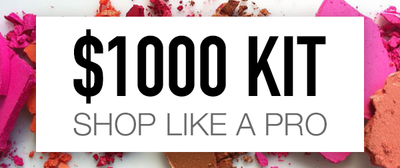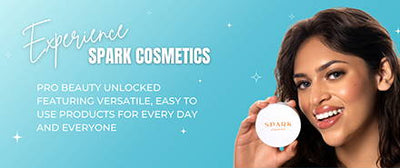Whether it’s your first year filing taxes as a makeup artist or whether you’ve been doing it for decades, every independent contractor can agree that tax season is one of the most confusing and stressful times of the year. With ever-evolving laws and regulations, no two tax filings are the same, and it can be hard to keep up. Not to mention, there’s that ever-present fear of messing something up and being at the mercy of the law.
If you’re filing 2020 taxes as a freelance makeup artist, here are the top five things you need to know before Tax Day. But, as always, consult a CPA to ensure that your taxes are filed correctly and with your best financial interests in mind.
5. Self-Employment Tax
So, why exactly are taxes so much more complicated as a freelance makeup artist than when you worked a 9-to-5 job? That’s because you’re now considered an independent contractor. When you work a full-time job, your employer automatically deducts federal and state taxes ahead of time, which is reflected in the paycheck you receive. As a sole proprietor (a.k.a. someone who is self-employed), you receive full pre-tax payment from clients. This means that you later need to pay federal and state income taxes and contribute to programs such as social security and Medicare.
To report your income and pay those taxes, you’ll need to fill out the forms Schedule C, Schedule SE, and Form 1040 annually. However, it’s important to note that you’ll need to pay your taxes quarterly using Form 1040-ES. Consult the IRS quarterly tax deadlines to keep track of when you’ll need to submit your payments. (Spoiler alert: first quarter taxes are due April 15!)
4. Health Insurance Deductions
It’s important to know that, if you’re not covered by a group insurance plan, you can deduct your health insurance premium from your taxes. Health insurance is an “above the line” deduction, so it can be deducted before you arrive at your adjusted gross income. However, note that if you qualify for health insurance through a full-time job or a spouse’s employer health plan, you may not be eligible for this deduction even if you opt to pay for your health insurance premium yourself.
3. Business Mileage Expenses
Another important deduction to note is your gas and mileage. It’s an often-overlooked deduction among sole proprietors since using your car for work is typically seen as common and insignificant. However, if you use your car for business purposes, such as traveling to a client’s venue, the deduction of 57.5 cents per mile can add up to be a significant amount. To file for this deduction, be sure to keep thorough mileage records throughout the year for every job you work. Investing in business and mileage apps created specifically for this purpose will make the process much easier and less tedious, ensuring greater accuracy.
2. Inappropriate Write-Offs
Just as many deductions go underutilized by sole proprietors, there are also many frivolous deductions falsely taken that could come back to hurt you if you don’t file carefully. While reasonable business expenses like mileage can be written off, you can’t write off anything used for personal use. For instance, you can write off the purchase of a makeup product that is used for your kit, but you cannot write off your latest personal skincare haul. Similarly, you can’t claim a home office as a write-off if that room is used for anything else. If you have a dedicated studio space, that may be eligible for a write-off. However, you can’t opt for a deduction for your workspace if you’re working out of your personal living room, for example. It can be difficult to parse which expenses are appropriate and which aren’t, especially as a sole proprietor. Start by asking yourself whether the expense is solely for business or whether you will personally utilize it or gain from it. If you’re ever in doubt, consult your CPA to ensure your deductions are legitimate and to help you avoid an audit.
1. COVID-Related Stimulus Payments
This point is unique to 2020 taxes, but COVID-related payments and loans can factor into your tax filings this year. If you’ve received a COVID-related loan, check with the lender to see whether the loan will be forgiven. Regardless of whether they’re forgiven or not, make sure to mention any loans of this kind to your accountant to ensure they’re factored into your filings.
You should also ask your accountant about whether you qualify for a stimulus check credit. If you didn’t qualify for government-issued stimulus checks based on your 2019 taxes, but you believe you should’ve qualified due to changes in 2020, you may be eligible for a tax credit.
Final Thoughts
If you have any questions about how to correctly file your taxes as a professional makeup artist, it’s always worth the extra cost to hire a CPA to handle them for you. They keep track of all the relevant tax laws in your state, so they can ensure your taxes are filed correctly and maximize any potential return.
About Camera Ready Cosmetics
Camera Ready Cosmetics was founded in 2003 by Makeup Artist Mary Erickson. She dreamed of having a pro makeup showroom where artists could play with professional products without the typical makeup store attitude.
Today, our team of beauty industry veterans work together to curate the best quality products on the market. We partner with brands who respect the industry and formulate products for true working artists. You won’t find CRC in high-end malls, and we don't wear matching brush belts.
If you want to play with products for a few hours and buy nothing, that's okay ... come in and play! Our store is your playground.













Leave a comment